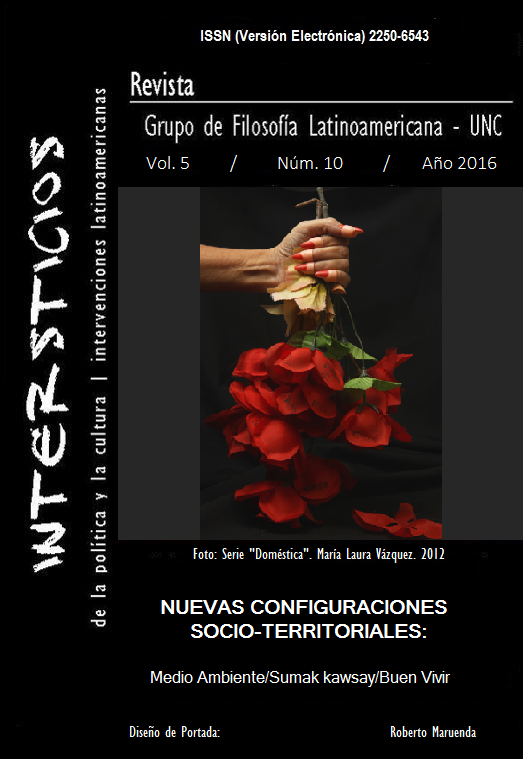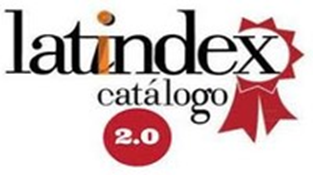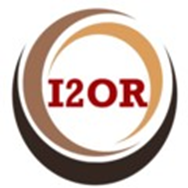From capitalist development to Buen Vivir from the decoloniality of power
Keywords:
Buen Vivir, de/coloniality of power, developmentAbstract
The Buen Vivir (Good Living) is a societal proposal that is emerging as an alternative to the current pattern of modern/colonial power. This is not only an epistemological, philosophical, political and theoretical proposal, but is also a way of life that points to the De/Coloniality of Power, because it rejects the relations of domination and exploitation imposed by this power pattern, as the imposition of "race" as the basic criterion of hierarchical social classification in the world since the sixteenth century. The Buen Vivir raises the need to reestablish relations of reciprocity and complementarity between people and with "Nature", the Mother Earth, and it is about a project that draws on various ongoing practices that have been invisible, such as those of economic solidarity, which have transcended the question of survival and tend to the de-commodification of "Nature" and in general of Life itself, and toward the decolonization of social relations, towards the Buen Vivir. Thus, this paper aims to discuss the scope of the Buen Vivir as a societal proposal. It is argued that this represents a rupture with the Development, a modernizing project of the postwar period based on epistemological assumptions that conceal its colonizing character.Downloads
Downloads
Published
Issue
Section
License
Authors who have publications with this journal agree to the following terms:
a. Authors will retain their copyright and grant the journal the right of first publication of their work, which will simultaneously be subject to the Creative Commons Attribution License that allows third parties to share the work as long as its author and first publication in this journal are indicated.
b. Authors may adopt other non-exclusive license agreements for distribution of the published version of the work (e.g., deposit it in an institutional telematic archive or publish it in a monographic volume) as long as the initial publication in this journal is indicated.
c. Authors are allowed and encouraged to disseminate their work through the Internet (e.g., in institutional telematic archives or on their web page) after the publication process, which may produce interesting exchanges and increase citations of the published work (see The effect of open access).











